Politics
Steep US tariffs set to hit Indian exports from Wednesday
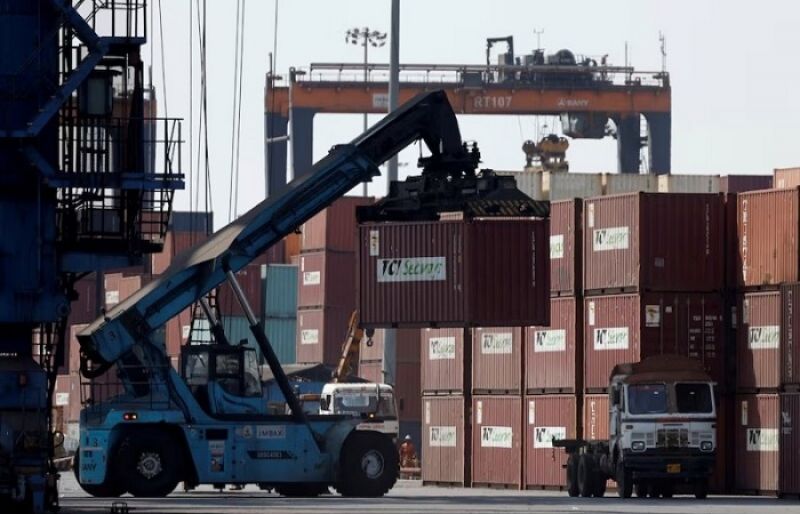

Indian exporters are bracing for a sharp decline in orders from the United States after trade talks collapsed and Washington confirmed that steep new tariffs on the South Asian nation’s goods would take effect from Wednesday, escalating tension between the strategic partners.
An additional 25 per cent duty announced by President Donald Trump, confirmed in a notice by the Homeland Security Department, takes total tariffs to as much as 50pc, among Washington’s highest, in retaliation for New Delhi’s increased buying of Russian oil.
“The government has no hope for any immediate relief or delay in US tariffs,” said a commerce ministry official, who sought anonymity for lack of authorisation to speak to the media.
Exporters hit by tariffs would receive financial assistance and be encouraged to diversify to alternative markets such as China, Latin America and the Middle East, the official added.
However, the commerce ministry did not immediately respond to an email seeking comment on the latest notice.
The new duties will apply from 12:01am EDT on Wednesday (9:31am IST), it showed. Exceptions are shipments in transit, humanitarian aid and items under reciprocal trade programmes.
The Indian rupee fell to a three-week closing low of 87.68 against the dollar, despite recovering some ground after suspected central bank intervention to support it.
The benchmark equity indexes closed down 1pc each, for their worst sessions in three months.
Wednesday’s tariff move follows five rounds of failed talks, during which Indian officials had signalled optimism that tariffs could be capped at 15pc.
Officials on both sides blamed political misjudgment and missed signals for the breakdown in talks between the world’s biggest and fifth-largest economies, whose two-way trade is worth more than $190 billion.
White House trade adviser Peter Navarro and US Treasury Secretary Scott Bessent have accused India of indirectly funding Russia’s war against Ukraine by boosting Russian oil purchases.
This month, Bessent said India was profiteering from its sharply increased imports, making up 42pc of total oil purchases, versus less than 1pc before the war, in a shift Washington has called unacceptable.
India has issued no directive yet on oil purchases from Russia. Companies will continue to buy oil on the basis of economics, three refining sources said.
Exporter groups estimate hikes could affect nearly 55pc of India’s merchandise exports worth $87bn to the US, while benefiting competitors such as Bangladesh, China and Vietnam.
“The US customers have already stopped new orders,” said Pankaj Chadha, president of the Engineering Exports Promotion Council. “With these additional tariffs, the exports could come down by 20-30pc from September onward.”
The government has promised financial aid such as greater subsidies on bank loans and support for diversification in the event of financial losses, Chadha added.
“However, exporters see limited scope for diversifying to other markets or selling in the domestic market.”
The commerce ministry official said the government had identified nearly 50 countries to which India could boost exports, particularly items such as textiles, food processed items, leather goods and marine products.
India’s diamond industry exports have already hit a two-decade low on weak Chinese demand, and the higher tariffs now threaten to cut it off from its largest market, taking nearly a third of $28.5bn annual shipments of gems and jewellery.
Broader economic impact
Private sector analysts warn that a sustained 50pc tariff could weigh on India’s economy and corporate profits, prompting the steepest earnings downgrades in Asia, even if proposed domestic tax cuts partly cushion the blow.
Last week, Capital Economics said full US tariffs would chip 0.8 percentage points from India’s economic growth both this year and the next.
Foreign Minister S. Jaishankar also said trade talks continued and Washington’s concern over Russian oil purchases was not equally applied to other major buyers such as China and the European Union.
The US could be a major energy supplier to India, an official of its New Delhi embassy said on Tuesday.
The US is committed to collaborating with India on exports of high-quality products and services to help achieve energy security and economic growth, the official added.
Prime Minister Narendra Modi has vowed not to compromise the interests of Indian farmers, even if it entails a heavy price. Modi is also moving to burnish ties with China, planning his first visit there in seven years at the end of the month.
Politics
Riyadh cuts 2026 deficit forecast to $44b amid push to expand non-oil revenue
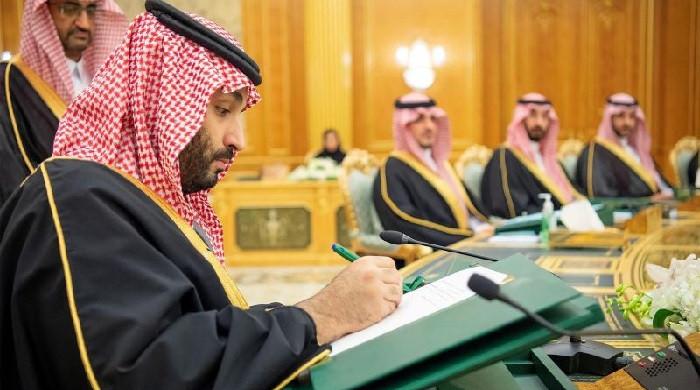
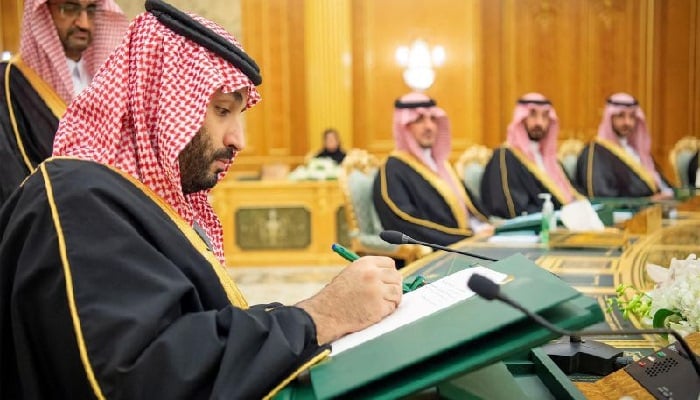
- 2026 budget projects deficit of 165 billion riyals.
- Saudi Arabia halfway through Vision 2030 strategy.
- Next phase of Vision 2030 plan will stress implementation.
Saudi Arabia approved its state budget for 2026 on Tuesday, forecasting a narrower fiscal deficit as it shifts spending to priority sectors like industry and logistics in a push to increase non-oil revenue.
The kingdom projected a deficit of 165 billion riyals ($44 billion), or about 3.3% of gross domestic product. That would be down from the 245 billion riyals it now estimates for this year after lower oil prices and production weighed on revenue, and spending overshot the budgeted level by around 4%.
The world’s top oil exporter, Saudi Arabia, is more than halfway through its Vision 2030 blueprint for economic transformation. The strategy, introduced by Crown Prince Mohammed bin Salman in 2016, calls for hundreds of billions of dollars in government investments to wean the kingdom’s economy off its dependence on hydrocarbon revenues.
According to the budget, 2026 will mark the start of a “third phase” of Vision 2030, signalling a shift in focus from launching economic reforms to maximising their impact.
The crown prince described the new phase as “accelerating the pace of progress and increasing growth opportunities to achieve a sustainable impact beyond 2030,” according to state news agency SPA.
A shift in spending but few specifics
The change in tone comes as Riyadh moves to refocus its $925 billion sovereign wealth fund away from delayed massive real estate projects toward sectors including logistics, minerals, artificial intelligence and religious tourism.
“Our level of spending in the last three budget cycles has been consistent, but now it is about what we are spending on, rather than how much we are spending,” Finance Minister Mohammed Al Jadaan told Reuters ahead of the budget release.
The budget included a few specific targets for that new focus; however, beyond setting a target of over 20 million visitors from abroad for the Umrah pilgrimage to Mecca in 2026, a sharp increase from the 15 million pilgrims expected this year.
Saudi to run ‘deficit by design’ until 2028, finmin says
Total expenditure is projected at 1.31 trillion riyals in 2026, lower than an estimated 1.34 trillion riyals this year. Total revenue is forecast at 1.15 trillion riyals, slightly up on the estimated 1.1 trillion riyals in 2025.
“This is a deficit by design,” Jadaan said in a media briefing on Monday. “We, by policy choice, will have a deficit until (20)28.”
The expected leap in the 2025 deficit to more than double the budgeted target of 101 billion riyals would put the shortfall at 5.3% of GDP, up from an initial target of 2.3%.
Revenues this year are estimated to miss the budgeted target by about 7.8%, while spending is seen 4% higher.
Public debt is expected to reach approximately 1.5 trillion riyals by the end of 2025 – about 31.7% of GDP – up from 1.2 trillion riyals in 2024 to help meet financing needs this year, the finance ministry said.
“The still low government debt level provides space for this fiscal stance, though it is vulnerable to a further fall in the oil price,” said Monica Malik, chief economist at Abu Dhabi Commercial Bank.
Recalibrating to ensure projects deliver
The Saudi government and the nation’s almost $1 trillion Public Investment Fund have both undergone a review of project and spending priorities, Jadaan told Reuters.
Some demands that seemed to be overly ambitious in terms of time frame or investment were scaled back to more reasonable objectives, he said.
Reuters reported in October that the PIF is preparing to shift away from the real estate gigaprojects that have dominated its development goals for the last decade.
In a departure from this year’s spending package, the 2026 budget made no mention of specific gigaprojects such as NEOM or the Sindalah island resort.
The PIF, like the finance ministry, is making sure initial plans for projects “are recalibrated to ensure that they are delivering what they are meant to deliver”, Jadaan said.
Politics
Afghan man arrested in Texas threatened suicide attack: Justice Dept


An Afghan man has been charged in Texas with threatening to build a bomb and carry out a suicide attack, United States officials said on Tuesday, as the Trump administration vows a crackdown on Afghan migrants after a deadly shooting.
Mohammad Dawood Alokozay, 30, of Fort Worth, allegedly made the threats in a November 23 video that he shared on TikTok, X and Facebook, the Justice Department said in a statement.
In the video, Alokozay allegedly praises the Taliban and threatens to carry out a suicide attack on Americans.
“Thanks to public reports of a threatening online video, the FBI’s Joint Terrorism Task Force apprehended this individual before he could commit an act of violence,” FBI Dallas special agent in charge Joseph Rothrock said.
Attorney General Pamela Bondi said Alokozay “came into America during the Biden administration and, as alleged, explicitly stated that he came here in order to kill American citizens”.
He faces up to five years in prison if convicted of making a threatening interstate communication.
Alokozay’s arrest comes a week after the shooting near the White House in Washington of two National Guard members.
A 29-year-old Afghan national, Rahmanullah Lakanwal, has been charged with first-degree murder in connection with the attack, which left one of the soldiers dead.
Lakanwal had been part of a CIA-backed “partner force” fighting the Taliban in Afghanistan, and entered the United States as part of a resettlement program following the US military withdrawal from Afghanistan in 2021.
US President Donald Trump said Sunday his administration intends to pause asylum decisions for “a long time” after the shooting.
“We don’t want those people,” he said on social media.
Politics
Indian diplomat in Ottawa offered $50000 to hitman to kill Khalistan Referendum organiser: SFJ

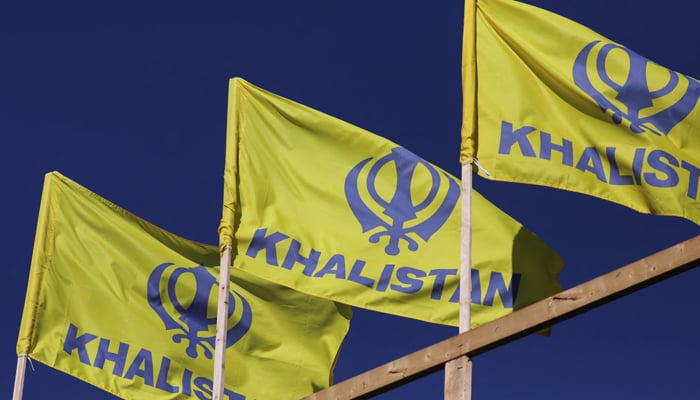
OTTAWA/WASHINGTON: Sikhs For Justice (SFJ), a US-based pro-Khalistan advocacy group, has alleged that a serving Indian diplomat in Ottawa attempted to arrange the killing of Inderjeet Singh Gosal, describing it as a “contract-to-kill” plot involving $50,000 in cash offered to a purported hitman.
SFJ said Canadian security and intelligence agencies were aware of the alleged plot and that the Royal Canadian Mounted Police (RCMP) had recently offered Gosal protective measures due to what the group described as an imminent threat.
Gosal has previously been identified in Canadian media as an organiser in the Sikh separatist campaign for an independence referendum for Punjab, and has said he received a police “duty-to-warn” notice related to threats he believes originated from India — an allegation India has repeatedly rejected in broader disputes.
SFJ General Counsel Gurpatwant Singh Pannun said the group was making the allegations public to prevent another killing of a Sikh activist in Canada, referencing the June 2023 assassination of Hardeep Singh Nijjar in Surrey, British Columbia — an event that triggered a major diplomatic rupture between Canada and India.

In its statement, SFJ also called for supporters to closely monitor the movements of India’s High Commissioner in Canada, Dinesh K Patnaik. Public safety experts generally discourage citizens from taking such actions and instead urge anyone with credible threat information to report it directly to police. Patnaik is listed by India as its High Commissioner to Canada.
The allegations surface amid a sensitive period in Canada-India relations. In October 2024, Canada expelled multiple Indian diplomats, linking them to an RCMP investigation into violent criminal activity connected to the Nijjar case — an accusation India called “preposterous.”
Recently, Gosal has been offered “Witness Protection” by the RCMP owing to an imminent threat to his life.
According to Pannun, multiple Canadian security channels — including the RCMP, which has recently offered witness protection to Gosal — have already received and assessed intelligence regarding the Contract-To-Kill plot against Gosal.
This information was communicated to the highest levels of the Canadian government, including: Prime Minister Mark Carney’s Office; Foreign Minister Anita Anand’s Office; and Minister of Public Safety’s Office.
Pannun stated: “Gosal’s Contract-To-Kill plot is the direct outcome of Prime Minister Carney opening trade talks with Modi without demanding accountability. Canadian sovereignty has collapsed to the point where Indian diplomats feel free to orchestrate killings.”
-

 Sports1 week ago
Sports1 week agoWATCH: Ronaldo scores spectacular bicycle kick
-

 Entertainment1 week ago
Entertainment1 week agoWelcome to Derry’ episode 5 delivers shocking twist
-

 Politics1 week ago
Politics1 week agoWashington and Kyiv Stress Any Peace Deal Must Fully Respect Ukraine’s Sovereignty
-

 Tech3 days ago
Tech3 days agoGet Your Steps In From Your Home Office With This Walking Pad—On Sale This Week
-

 Tech1 week ago
Tech1 week agoWake Up—the Best Black Friday Mattress Sales Are Here
-

 Entertainment2 days ago
Entertainment2 days agoSadie Sink talks about the future of Max in ‘Stranger Things’
-
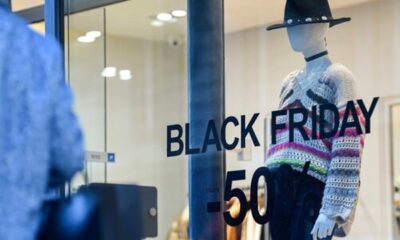
 Fashion2 days ago
Fashion2 days agoResults are in: US Black Friday store visits down, e-visits up, apparel shines
-

 Sports2 days ago
Sports2 days agoIndia Triumphs Over South Africa in First ODI Thanks to Kohli’s Heroics – SUCH TV






